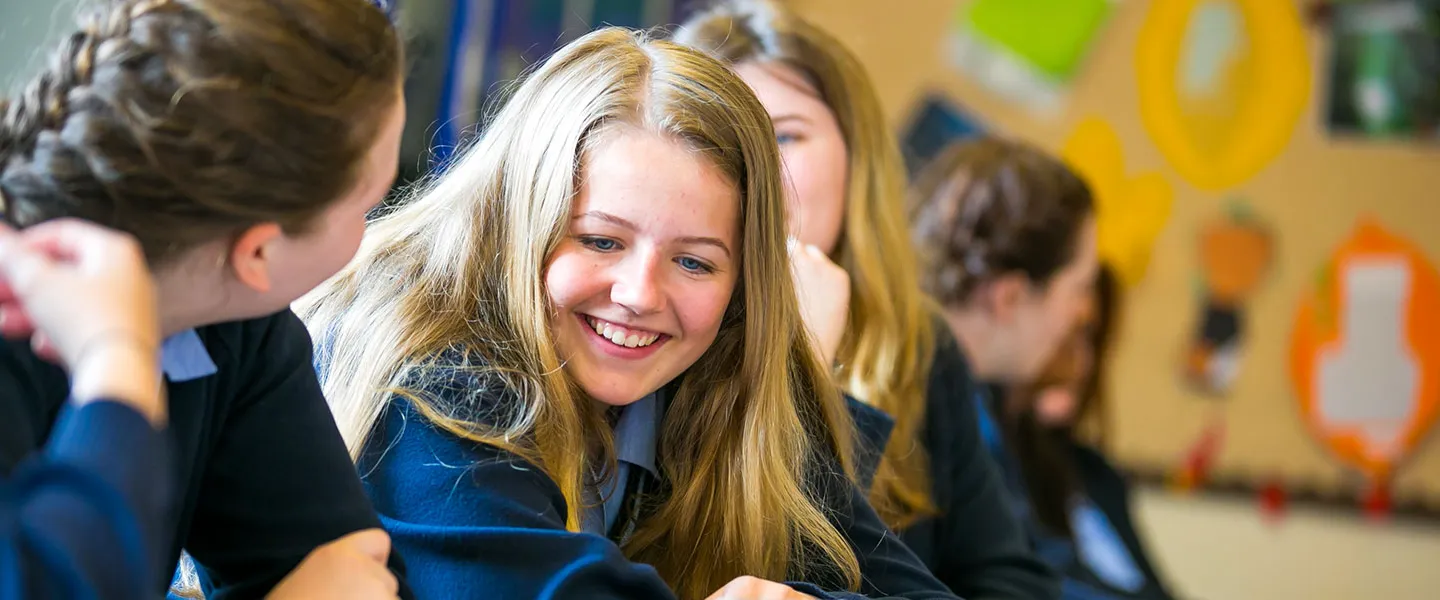Our Academic Lecture Programme is in full swing this term, albeit virtually, with three superb lectures already delivered to Queen's girls as well as students from local schools.
The programme aims to give students the chance to hear from some of the UK’s leading university researchers. The lectures are organised to be relevant for Year 12 university applicants but are equally suitable to Year 10 and 11 students wanting to find out more about a subject they are considering.
An overview of the lectures so far is below and students from other schools can still sign up for the remaining lectures here.
Tues 26 January
'The role of business in society: sustainability and purpose' (Dr Sarah Ivory, Lecturer in Climate Change and Business Strategy, University of Edinburgh Business School)
One of the UK’s leading researchers in the field of business and the environment enthralled students with a fascinating insight into the responsibilities of the corporate world.
Dr Sarah Birrell Ivory, of Edinburgh University Business School, spoke about the concept of business, both about what it is and also what it should be for.
‘A key question to start with is whether companies exist to serve shareholders, stakeholders or society as a whole,’ said Dr Ivory whose talk launched this year’s Queen’s Academic Lecture Programme.
Dr Ivory discussed the sometimes tense relationships between achieving profits and serving the wider needs of both communities in the environment. She referenced pioneers in the business word who had led the way in these areas including American entrepreneur Ray Anderson. Anderson began to ask the serious questions about the impact his flooring company was having on the environment an the easures he could take to improve its profile, inspiring many others along the way.
Dr Ivory also spoke on her other research interest which is in critical thinking, encouraging girls to consider, for example, the purposes of going to university and the best strategies for learning.
Her new book ‘Becoming a Critical Thinker’ is fresh off the presses within the last few weeks.
Tues 2 February
'The Psychology of Children's Humour Styles' (Dr Lucy James, Department of Psychology, Univeristy of Keele)
Ever felt puzzled by the chortling of your little ones? Don’t get it when they suddenly scream with laughter or giggle in a corner with their best friend? Well some of the answers were on hand in a revealing talk that explored the often complex world of children’s humour styles.
Dr Lucy James, a psychologist from Keele University, looked at the different reasons that children use humour in her presentation for the Queen’s Academic Lecture programme.
“Children’s humour may work to increase their popularity, enhance their confidence or may reflect other issues such as neediness,” said Dr James who has done extensive research in the field among primary school children.
“Alternatively children may use aggressive humour such as teasing others which can ultimately lead to them being disliked by their peers.”
Dr James also went into the complexities of setting up research into this area and the advantages and disadvantages of different research methods when investigating primary school children.
“There certainly seems to be a link between children’s humour and their wellbeing,” Dr James added.
“We also found quite significant gender differences with boys using more affiliative humour to bond them to a grouping.”
Tue 9 February
‘Sensing the World with Sound’ (Dr Art Gower, Lecturer in Dynamics, Department of Mechanical Engineering, University of Sheffield)
The astonishing new techniques being developed by cutting-edge engineers were explored in a spellbinding talk by a team from the University of Sheffield.
Dr Art Gower showed how sophisticated analysis of reflected sound waves can be used to 'see' the world around us - much in the way that bats use sound to hunt their prey.
"Sound is in many ways a better way of exploring an environment as sound waves can often travel around or through objects and obstacles in a way that light cannot," said Dr Gower who lectures in Sheffield's faculty of Mechanical Engineering.
Dr Gower suggested that this technology could be used for a new generation of robots who could map and explore the UK's vast network of often crumbling and leaking sewers.
"Using reflected sound these robots could learn to check for flaws in pipes or blockages. At the moment we often have no idea what is down there and exploring involves digging up roads at huge expense," he said.
The session, forming part of the school's Academic Lecture programme, gives students in Year 12 and lower years the chance to hear about some of the UK' leading academic research.
Dr Gower was joined by widening participation officer Charis Bronze - herself a PhD in mechanical engineering - and Charlotte Marn, a student of chemical engineering. Both gave fascinating perspectives on the challenges but also the rewards of studying the discipline and also working in the engineering industry.
"Engineering is about applying science but also about solving problems of almost every imaginable kind," said Charlotte. "This is one of the reasons why engineers are valued so highly in the world of industry and in the workplace."
Still to come:
Tue 23 February
Exploiting Chemical Ecology to Feed the World’ (Dr Joe Roberts, Lecturer in Entomology and Integrated Pest Management, Harper Adams University)
Tue 2 March
'Epidemics and Pandemics - from Cholera to Covid-19.' (Rebecca Baritt, Edge Hill University)
Tue 20 April
(TBC) ‘Ultrasound in Phonetic Research’ (Dr Claire Nance, Senior Lecturer in Phonetics and Phonology, Lancaster University)
